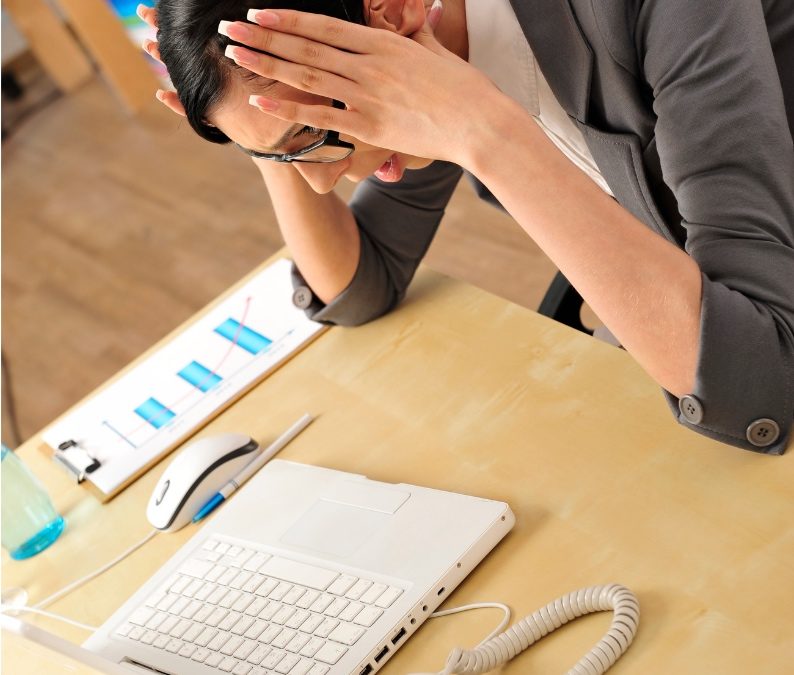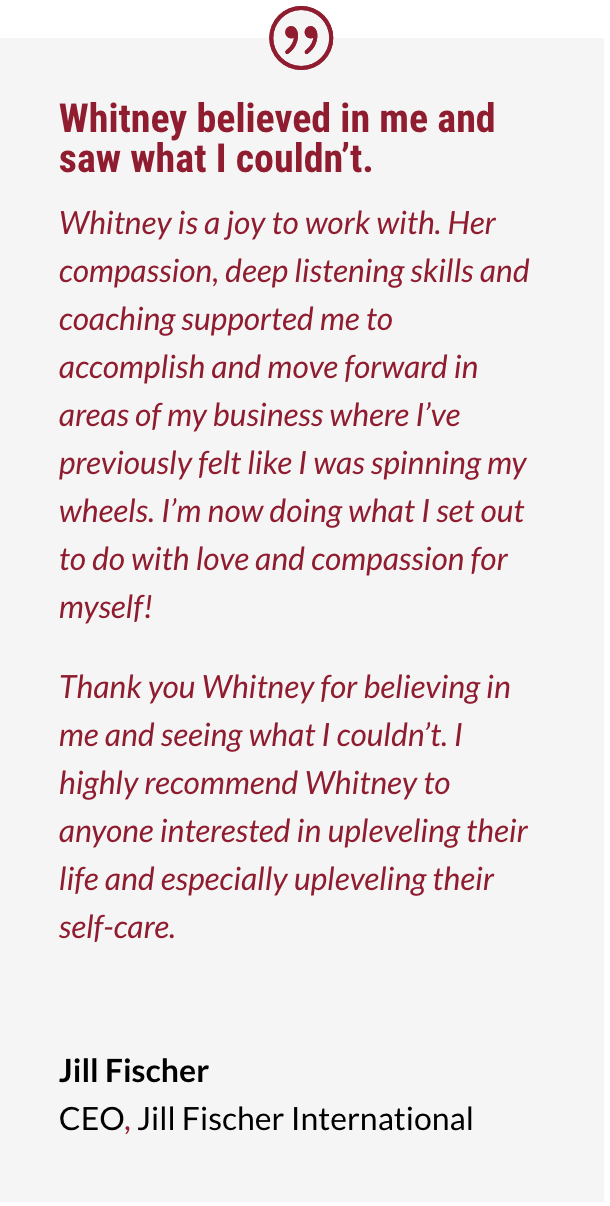You wake up with your heart pounding out of your chest. You’re shaky and feel like you’re going to jump out of your skin. Constantly on edge, you can’t settle yourself. You’re a nervous wreck, overwhelmed with all the commitments you’ve made, and the most annoying thing is that the anxiety is preventing you from fulfilling upon your promises.
Each day there’s another blast of anxiety. It’s become as much a part of your life as shallow breathing. And the only way you know how to stop the nerve-wracking jumpiness is to take a Xanax. After all, wasn’t that what it was prescribed for? But you really don’t like taking medication and each day you resist until you can no longer function without it.
I get it! This was what my anxiety looked like… and it wasn’t pretty.
And here’s the important point: my anxiety was a symptom of burnout, and I didn’t know this until it was too late… until I hit full-blown burnout. Burnout is a serious condition which has the potential to wreck your health and well-being. Don’t let this happen to you!
The Link Between Anxiety And Burnout
Anxiety, if you don’t tend to it, can lead to burnout because it weakens your body’s ability to function as well as its designed to. Burnout can trigger or amplify anxiety. Before burnout, I occasionally felt a low level of anxiety. Very rarely would I have a medium level of anxiety (when I went to the dentist). When I was in burnout, my ability to handle stress was compromised and this triggered high levels of anxiety.
How To Identify Serious Anxiety Symptoms
Anxiety is a very normal – and usually temporary – response to stressful life events like moving, changing jobs, or having financial troubles. However, sometimes anxiety runs amok and starts to take over your life.
Early on, you may experience mild symptoms of tension, worry, and edginess. These symptoms are easy to dismiss as nothing serious.
But if you continue to ignore them, you can move closer to burnout and your anxiety may become so serious that it interferes with your ability to get your work done. Anxiety may also cause problems in your personal life.
Signs of serious anxiety include:
Excessive worry: one of the most common symptoms of prolonged anxiety disorder is excessive worry that’s way out of proportion to the events that trigger it.
Feeling agitated: when you feel anxious, part of your sympathetic nervous system goes into overdrive and kicks off a cascade of effects throughout your body. This is when you experience your pulse racing, your palms sweating, and your hands shaking. Your brain believes you’re in danger, and it’s preparing your body to react to the threat.
Tense muscles: muscle tension is strongly linked to anxiety, but the exact nature of the relationship is not well understood. However, treating muscle tension has been shown to help reduce symptoms of worry.
Panic attacks: panic attacks produce an intense, overwhelming sensation of fear that can debilitate you. Your extreme fear is usually accompanied by a rapid heartbeat, sweating, shaking, shortness of breath, chest tightness, nausea and fear of dying or losing control.
Here’s the bottom line:
When you’re experiencing anxiety, caring for yourself isn’t an option; it’s a necessity. Particularly if you know you’re close to or in full burnout.
So let’s take a look at some ways you can reduce your anxiety.
4 Ways To Reduce Anxiety Naturally
Fortunately, there are a variety of natural ways to nurture yourself and help reduce your anxiety.
Here are some of my favorites:
- Emotional Freedom Technique, also known as EFT or tapping: Tapping is a set of techniques that use your body’s energy meridian points. You stimulate these points by tapping on them with your fingertips – literally tapping into your body’s own energy and healing power.
- Meditation: Mindfulness meditation strengthens your ability to regulate your emotional responses to perceived threats, in direct contrast to anxiety which is when your responses run out of control.
- Exercise: Exercise produces endorphins, which are chemicals in your brain that act as natural painkillers. It takes only about five minutes of aerobic exercise to start stimulating the anti-anxiety effects.
- Essential Oils: Essential oils are scented liquids that are derived from plants, flowers, and fruits. Research suggests that aromatherapy using essential oils may help promote relaxation and relieve anxiety. Bergamot orange, chamomile, and lavender are particularly good for anxiety.
These are just a few examples of natural ways to reduce your anxiety. You can get more helpful tips about burnout when you sign up for my email list.
It’s Time To Show Your Anxiety The Door
Serious anxiety and burnout are health conditions to be taken seriously.
If your anxiety has progressed far enough that you believe you’re suffering from burnout, or are teetering on the edge of full-blown burnout, it’s time to stop it in its tracks.
Fundamentally, anxiety and burnout are injuries to your health. As with most injuries, continuing the same patterns that caused them to occur in the first place will only make them worse, just like an athlete who continues to race through a hairline fracture. So if you’ve been pushing through your symptoms, let’s get you back on the path of well-being.
In addition to the techniques I’ve given you in this post, get my complimentary gift “From Burnout To Balance: A Simple 10-Minute Daily Self-Care Practice.”
This practice has been shown to:
-
- Increase mindfulness, well-being, self-confidence, and personal power
- Increase your ability to concentrate
- Cultivate a greater resilience to stress, a positive mindset, and a sense of hopefulness and calm
- Decrease stress and stress-related symptoms like frustration, mood swings, feelings of overwhelm or lack of control, anxiety, depression, low energy, headaches, body aches and pains, muscle tension, chest pain and rapid heartbeat, insomnia, and frequent colds and infections
- Reduce or even stop worrying
This may sound too simple – how can 10 minutes a day change your anxiety? Yet it can…. one daily practice, for a few minutes, could change your life.
I’m here to support you in reducing your anxiety and breaking free from burnout. Your next step is to: >> Click here and download my free gift, “From Burnout To Balance: A Simple 10-Minute Daily Self-Care Practice.”





